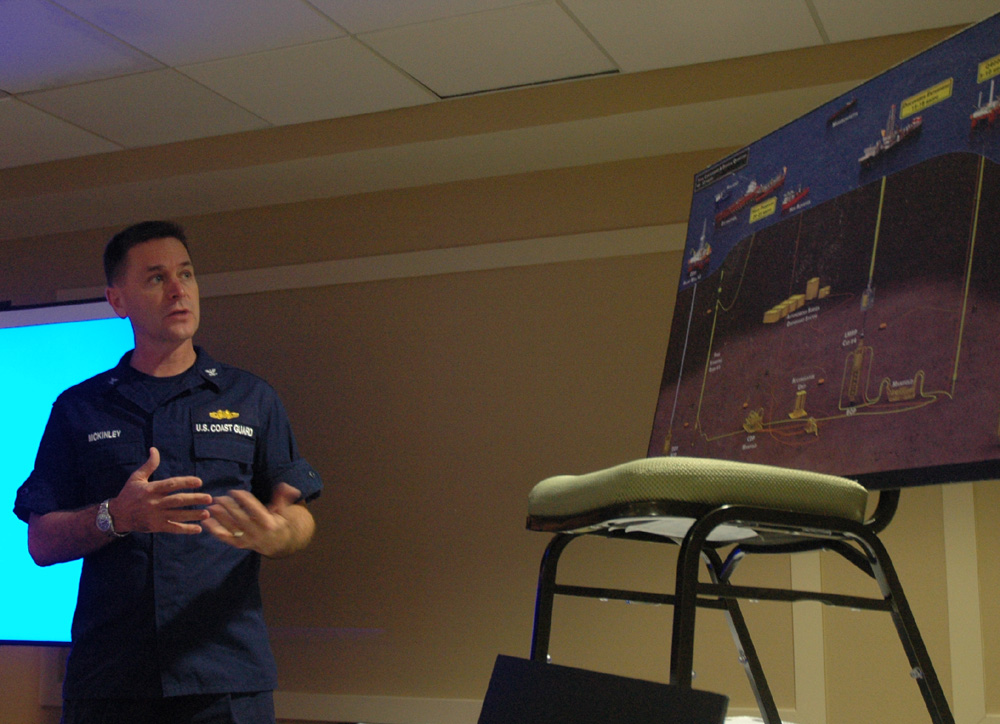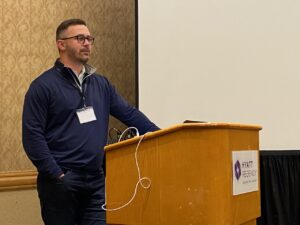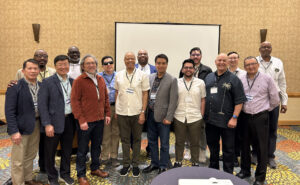
NEW ORLEANS (BP)–There’s plenty Southern Baptists can do for people affected by the Deepwater Horizon explosion and the millions of gallons of oil spilling into the Gulf of Mexico: provide hope for those who think they have none.
“We need to ramp up the emotional/spiritual care,” said Mickey Caison, adult volunteer mobilization team leader for the North American Mission Board, as he summarized the consensus at what was called the Deepwater Horizon Summit in New Orleans June 30-July 2.
The three-day conference, convened by the Southern Baptist Convention’s disaster relief department of NAMB, involved about 40 people, including Baptist disaster relief leaders from Texas, Louisiana, Mississippi, Alabama and Florida, plus regional and national leaders from the Salvation Army, American Red Cross and Federal Emergency Management Agency (FEMA).
Nearly 200 million gallons of British Petroleum unrefined crude oil has been escaping into the Gulf of Mexico over the last 80 days (as of July 9). The fishing industry has been crippled; so has tourism and local economies in many places across the Gulf. Tar balls have been found on beaches in all five Gulf states. About one-third of Gulf waters have been closed to fishing, and in some cases — such as Grand Isle, La. — the beach itself is closed.
“The people are down,” said Gibbie McMillan, disaster relief director for the Louisiana Baptist Convention. “What better time to offer hope? … There is a larger opportunity now; no need to wait for a hurricane. We’ve got to come up with some way of offering hope.”
Presenters from the Unified Area Command, which is coordinating government and British Petroleum response to the oil spill, and members of National VOAD (Volunteer Organizations Active in Disasters) together with Baptist disaster relief leaders described the challenges of what is an industrial accident rather than an “act of God” disaster, which means it is not under the purview of FEMA. For Southern Baptists who want to help, that means going through local associations and state conventions rather than a coordinated response through Southern Baptist Disaster Relief.
“We’ve not been here before,” Caison said. “This [industrial accident basis for disaster relief] is new territory for us. There’s a whole scope of underlying things and we need in some way to pull something together different from ever before.”
Among the challenges:
— How to help people without further damaging the local economy. For example, volunteers cleaning up beaches take income away from people who have been hired by British Petroleum to do the job.
— How, where and when to provide disaster relief chaplains, how to provide housing/meals for them and how might they be utilized in conjunction with stress-reducing events such as block parties or movie nights.
— How to counteract the negative effect of much of the media coverage spewing from talk radio, television and print.
— How and when to allocate which resources in a timely manner. Needs of states impacted by the oil spill vary, and will continue to vary depending on the path of the oil slick. For example, Louisiana’s shoreline and fishermen currently are most impacted by the spill. But oil has washed up on beaches in the other states, which affects local businesses and state tax revenues.
— Varying people groups need help unique to their situation. Those who have worked in the fishing industry are in a different place emotionally and spiritually than are the hundreds of workers brought in by the BP oil company to help clean up.
— Forecasts that 2010 could see a record number of sizable hurricanes, with ramifications on volunteer groups involved in post-hurricane disaster relief. Safety and environmental issues related to oil-soaked debris raise the question of what kind of training may be needed.
The Deepwater Horizon oil spill has affected people in southern Louisiana longer than in the other Gulf states. Fishermen who have lost their jobs are on a list to be hired by BP for cleanup operations, but only a third have been called out. They have a multi-generational affinity for the marshlands that are becoming increasingly oil-soaked despite the best efforts of everyone involved. They don’t know when the crisis will be over and have increasingly dour thoughts about how long it will take — if ever — before life returns to “normal.”
And while such thoughts swirl in the minds of those in the Louisiana fishing industry, they need to feed their families, pay the note on their fishing boat, comfort their spouses and keep a wary eye out on the weather.
The shrimping industry in Mississippi has been “shut down and people don’t know when they’ll get it back,” said Jim Didlake, director of men’s ministries for the Mississippi Baptist Convention Board. The vacation industry has been impacted in Alabama, said Mel Johnson, state missionary for disaster relief with the Alabama Baptist State Board of Missions. Florida tourism has been hit hard in Pensacola and the oyster season has been extended to compensate, said Fritz Wilson, director of disaster relief for the Florida Baptist Convention.
“The key for us is to get accurate information and disseminate it,” Wilson said. “I really believe we can be a calm voice.”
The Salvation Army is now asking people who come to its various service centers along the Gulf Coast how they’re doing emotionally, regional director Bill Feist said. Trevor Riggen, senior director of disaster services with the American Red Cross, said, “[M]ental health is the big thing.” He called it “snowball stress” and said the Red Cross is looking for ways to provide coping skills. It’s “mental health first aid,” Riggen said.
Joe Arnold, director of missions in Louisiana’s Bayou Baptist Association south of Interstate 10, spoke of the “hidden victims” — those who lived a cash lifestyle, who don’t have the receipts necessary to make a claim to the BP oil company. He also spoke of the 10,000 jobs lost in his association.
Jay Johnston, associate pastor at First Baptist Church of Covington, La., which is on the north shore of now-affected Lake Pontchartrain, said the effects of the oil spill have spread north.
“Men are coming to the church who went to their office and were told they didn’t have a job anymore [and to] ‘go home,'” Johnston said. “They go to the church and say, ‘What do I do?'”
A great need exists for Southern Baptist Disaster Relief chaplains to minister especially to the people who live in the bayou country that touches the Gulf of Mexico, participants at the Deepwater Horizon Summit concurred. But, as Arnold noted, no housing is being provided by FEMA or meals from feeding units, as there would be if a disaster had been declared, so the only chaplains to serve over the last month have come from local churches.
Prayer needs to be emphasized, Johnston said. At FBC Covington, at 10 a.m. and 2 p.m. each weekday, prayers are lifted up for the people affected by the oil spill and for the workers who are working to clean it up.
The best news heard at the summit was that the oil is not considered a hazardous substance. While not pleasant to work with, oily residue is easily removed with dishwashing liquid, said U.S. Coast Guard Lieutenant Commander Jacob Wamsley, an environmental health officer.
People involved in any hurricane disaster relief efforts won’t need Tyvek attire or respirators, said U.S. Coast Guard Capt. Scott McKinley, executive assistant to the deputy area commander of the Unified Area Command. Training is expected to be no more rigorous than is typical for disaster relief volunteers.
More people than usual likely will evacuate ahead of this year’s hurricanes because of the oil expected to be part of a storm surge. Several parishes in Louisiana — and counties in other states — already have developed evacuation plans and signed contracts for bus transportation.
“When we put together this summit, we were thinking of all the questions related to a hurricane when oil was a factor, but what we have learned here is that we should be involved now,” Caison said. “I really appreciate the states’ response to our call [for this summit.] We were able to have a substantive discussion and have set in motion a plan for a post-hurricane response. Also, we’ve identified opportunities to provide support for local associations in Louisiana now.”
Reports from the Coast Guard were invaluable, said Bruce Poss, SBC disaster relief coordinator from NAMB.
“It seems from what we heard that our normal response to a hurricane will work,” Poss said. “That should be calming the fears of our volunteers. It will be a typical disaster relief response.”
–30–
Karen L. Willoughby is managing editor of the Baptist Message, newsjournal for the Louisiana Baptist Convention.
















